One of the most exciting features of Sipadan Island (Pulau Sipadan in Malaysia language) is scuba divers can easily spot over 10 sea turtles. The turtles of Sipadan also don’t seem to be afraid of human. As Sipadan is a paradise for turtles and they don’t feel threaten here, can’t this island be a favorite nesting ground of turtles too? Funny thing is, very few tourists even wonder this, so the turtle hatchery on Sipadan can remain as a hidden secret and not flooded by visitors.
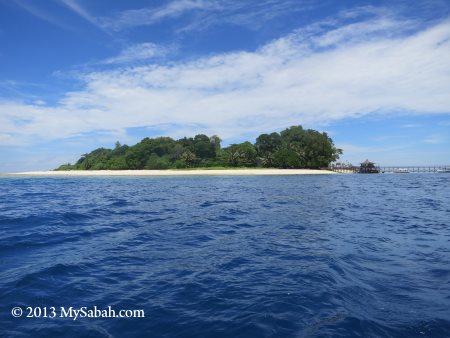
Sipadan Island has abundant corals and fishes, and sandy beach, the perfect conditions for turtle nesting. However, Turtle Islands Park and Lankayan Island of Sandakan are more famous than Sipadan as a turtle nesting site.
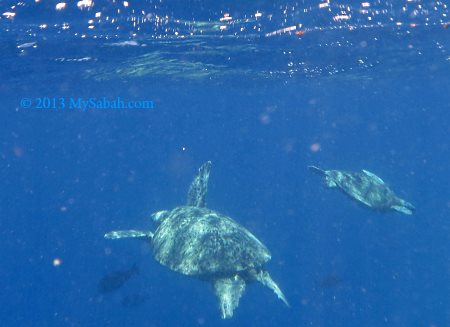
Pic: if you are lucky, you would spot turtle mating in Sipadan, which can last for 20 hours.
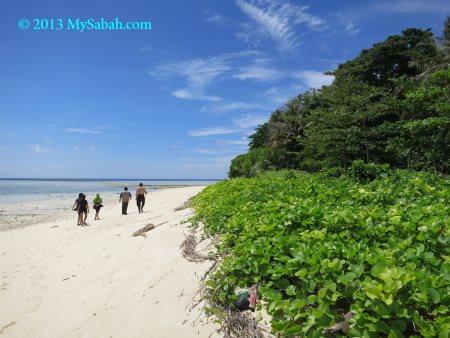
During my visit to Sipadan in Apr, my dive operator Borneo Divers brought me to the Turtle Hatchery of Sipadan, which is about 150 Meters away from the jetty (turn left).
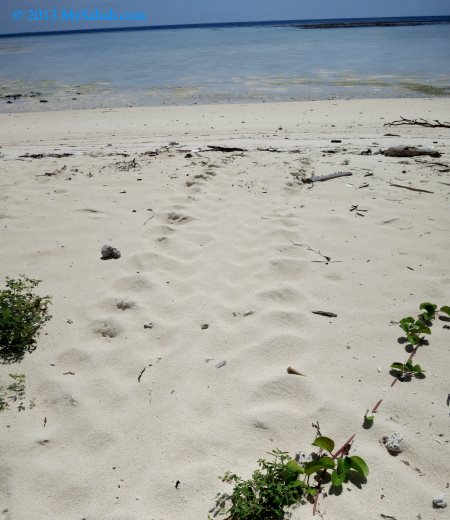
Pic: when I was getting near, I saw the “tyre mark” of mother turtle on the beach. This photo proves that sea turtle has wheels (just kidding!). The track shows that turtle crawls on beach inch by inch. It’s quite an effort so it prefers to lay eggs during high tide.
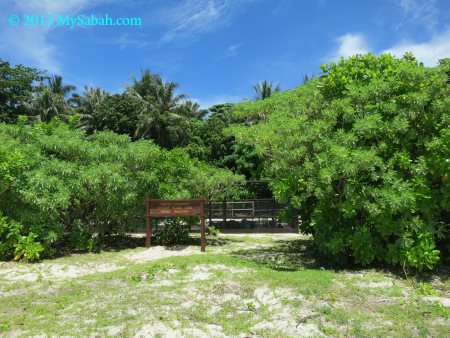
Pic: Turtle Hatchery of Sipadan. It is managed by Sabah Parks since 2005.
This hatchery is not open to public, so walk-in tourists won’t be entertained. You need to write-in to Sabah Parks in advance for a permit to visit (which is another permit different from diving permit). The Sabah Parks staff will guide you for a tour and even shows you the baby turtles (if available).
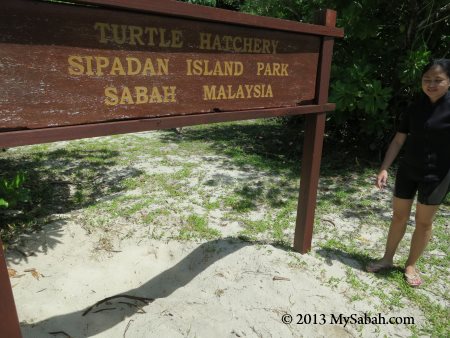
Pic: there is a turtle nesting below the signage. Seem like turtle can read too.
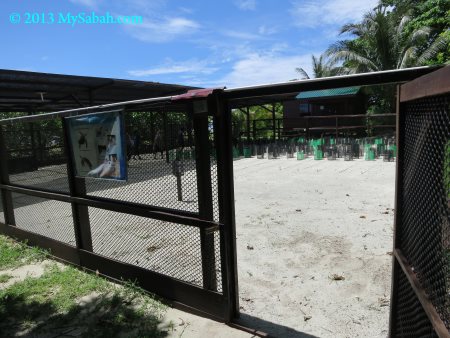
Pic: the entrance to the turtle hatchery
All the eggs from turtle nests will be transferred to this area for protection and conservation. The turtles that nest on Sipadan are Green Turtle (species: Chelonia mydas) and Hawsbill Turtle (species: Eretmochelys imbricata).
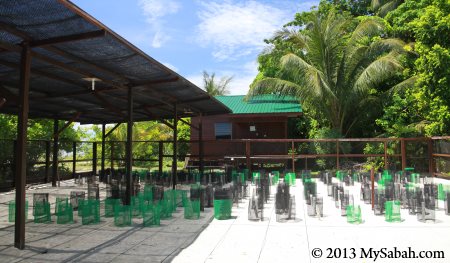
Do you notice half of the hatchery is under the sun and another under the shade?
The temperature can determine the sex of the baby. Hotter sand temperature is more likely to produce female turtles (not 100% but very high chance). FYI, male turtle takes 10 days longer than female to hatch.
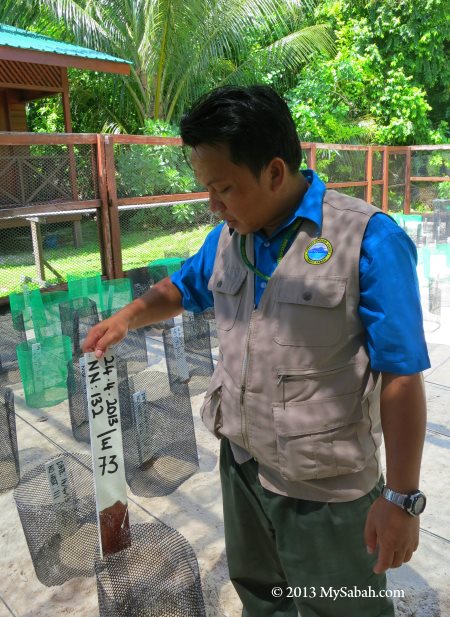
Mr. Joannes, who is the caretaker of turtle hatchery on Sipadan Island Park of Sabah Parks, tells us about the tagging, measuring, excavating and releasing of sea turtles. He also says the peak season of turtle nesting usually falls in August and the highest nesting record (of Sipadan) is 18 turtle landing in a night.
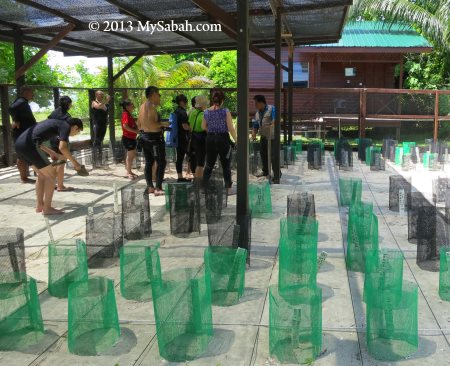
The eggs from each nesting is surrounded by mesh wire, to prevent predators such as lizard, rat and crab from digging for the eggs.
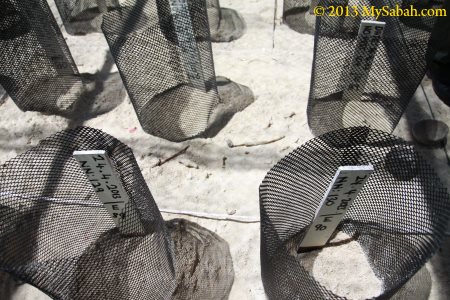
Pic: each nest is labelled and recorded for tracking and research purposes.
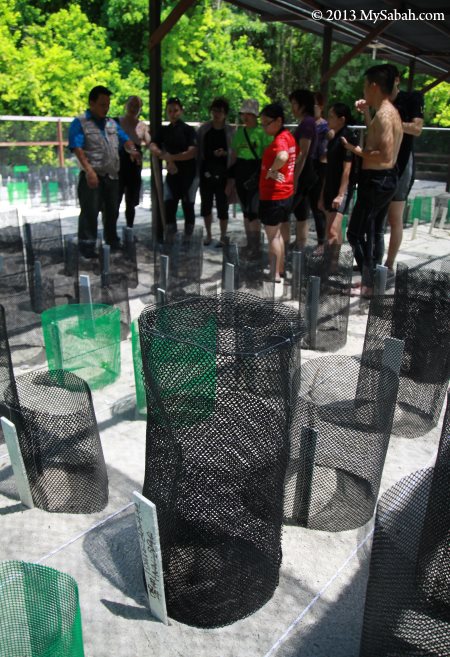
Pic: they will cover the opening of the mesh wire when the eggs are about to hatch (normally takes 70 days).
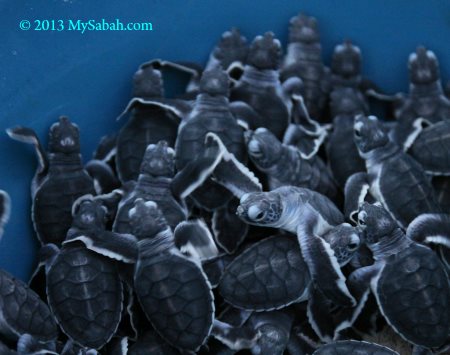
The baby turtles will be released into the sea. They don’t simply put all the baby turtles into a basket then pour them all into the sea. The correct way is to release the turtles about 4 Meters before the sea water. By doing so, they will remember their place of birth and come back in future for nesting. Scientists confirm that sea turtle has the ability to use Earth’s magnetic field to go back to where they hatch.
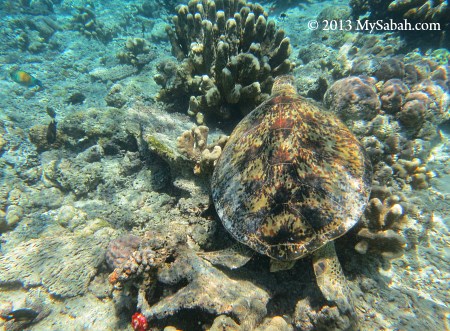
Based on the collected data from tagging, the turtles released from Sipadan can swim as far as the water of Philippines and Australia. Therefore, this conservation program also benefits the marine ecology of other countries. Let’s hope this amazing marine wildlife will be everywhere again in our ocean.
Photos taken in Semporna, Sabah, Malaysia Borneo

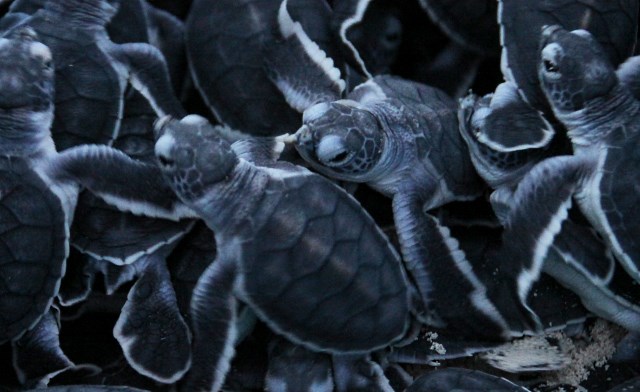

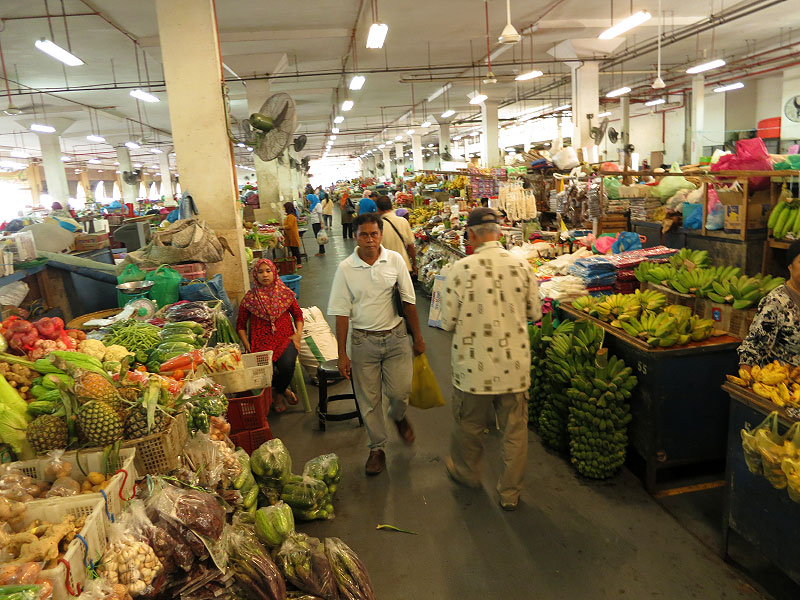

Save Turtles Campaign in West Borneo